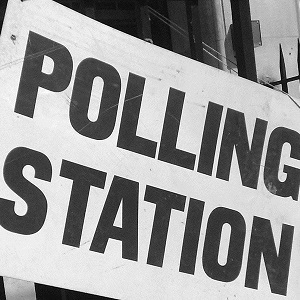To win back trust, Labour must back a new voting system
Whatever your stance within the Labour Party, it's hard not to be enthused by the sheer number of people joining and getting involved in Labour right now. In conversations with people in my own constituency, I've found that these new...
Whatever your stance within the Labour Party, it’s hard not to be enthused by the sheer number of people joining and getting involved in Labour right now. In conversations with people in my own constituency, I’ve found that these new joiners have a fairly diverse set of views, but they share one thing in common – hope. They feel that, for the first time in their lives, politics is changing and they stand a chance of being listened to.
Hope is the currency of the Left. When people see Labour as a genuine vehicle for change – one that looks and sounds like it can own the future and give people a better life – then we tend to win. And if we’re honest, it’s been some time since people felt that way about us. Increasingly, people have come to view our entire political culture in the UK as stale and inaccessible. I admire anyone who can make people think again about this, but I also think we need to address some of the root causes of that alienation. For me, any serious examination what is wrong with the way we do politics in Britain must consider the role of the first-past-the-post electoral system.
I believe that our current voting system is bad for the political culture of the UK. It forces the major parties to overwhelmingly devote their resources on just a handful of constituencies, it fails to treat voters equally regardless of where they live, and most of all it creates false electoral deserts, where whole regions of the country are dominated by one party despite their opponents recording substantial numbers of votes.
First-past-the-post has been a huge contributing factor in how remote ordinary people feel from politics. As vote share between the major two parties has declined, our general elections have become less and less representative. If winning an argument with the British public becomes a different task to winning the votes required to form a government, then something has gone wrong.
None of this is a means to dispute the formation of the new Conservative government. No electoral system would have produced a Labour government, because people simply didn’t trust us sufficiently to do that. But the results of the election should concern anyone purporting to be a democrat: in the south east, the Tories got 51% of the vote but took 93% of the seats; in the south west, they got 47% of the vote but took 94% of the seats. In the north east the situation is reversed – Labour took 47% of the vote but won 90% of the MPs. This is simply not conducive to a representative Parliament.
In Scotland, the SNP won an impressive 50% of the vote, but a thoroughly disproportionate 95% of the seats. But Scotland does lead the way on some best practice via the Scottish Parliament. Scotland’s 129 MSPs are comprised of 73 constituency members elected under first-past-the-post, and 56 regional representatives elected via 8 additional member regions. Electors vote twice – once for a specific candidate and once for a political party.
I believe this system represents the best possible mix of ensuring we have representative elections and a strong constituency link, where people know who their local MP is but also get a Parliament broadly in line with how they voted. A comparable system for Westminster (assuming it is reduced in size as planned) would see 400 constituency MPs elected as they are now, for constituencies roughly a third bigger than at present. The remaining 200 MPs would be elected across 20-30 regions of the UK.
If one party won sufficient support, there would still be a majority government (as, indeed, there are in Scotland). However, if that didn’t happen there would have to be minority governments or coalitions. It’s also true that minor parties, including parties that we in Labour strongly dislike, would have more MPs. I’m afraid that is just the democratic reality of elections – if you don’t want your opponents to win, you campaign and beat them. You can’t rely on the rules being rigged in your favour. In addition, it would be inescapable that there would need to be a greater degree of pluralism and less tribalism in how decisions were made and legislation passed. Personally, I’m fine with that – as are most people in the UK.
Jonathan Reynolds is the Labour and Co-operative MP for Stalybridge and Hyde, and Shadow Minister for Rail.
